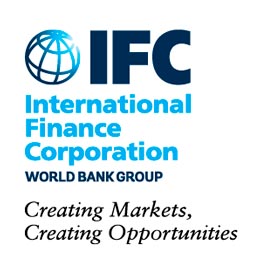IFC, the largest global development institution, has provided almost $1 billion in financing to Serbia’s private sector over the past six years
IFC, as a member of the World Bank Group, has provided Serbia and the broader region with significant advisory and capacity building support over the last decade. It now plans to ramp up its investments at this critical juncture, with a focus on regional integration and convergence towards EU accession.
IFC has just announced the financing of the construction of a large biomass power plant in Serbia. What major projects has IFC previously funded in our country?

— We have provided almost $1 billion in financing to Serbia’s private sector over the past six years. Notable projects include the Dolovo and Čibuk wind farms, Nikola Tesla Airport, the Vinča landfill and waste-to-energy plant, as well as various credit lines to the banking sector.
Several IFC advisory programmes have also been implemented in an effort to boost Serbia’s socioeconomic development, with a focus on improving the country’s business environment, integrating SMEs into regional and global value chains, supporting the green transition and implementing new public-private partnerships.
Our most recent investment in Drenik, Serbia’s largest producer of tissue paper, will support the company in developing the country’s first large-scale captive combined heat and power biomass plant—boosting renewable energy generation and helping to reduce greenhouse gas emissions in Belgrade.
What percentage of IFC-funded projects are considered green projects?
— IFC is actively engaged in green finance activities, channelling investments towards environmentally sustainable projects and initiatives worldwide. In Serbia, almost 40 per cent of our investments over the last six years were allocated for green projects.
Almost 40 per cent of our investments in Serbia over the last six years were allocated for green projects
We estimate that around $10 to $20 billion worth of investments in renewable energy generation and green buildings, infrastructure and transport could be financed profitably by the local banking sector over the next decade.
To what extent does IFC prioritise Environmental, Social and Governance (ESG) principles in selecting projects to finance?
— ESG principles have always been an IFC priority. Our ESG policies, guidelines and tools are widely adopted as market standards and embedded in the operational policies of corporations, investors, financial intermediaries, stock exchanges, regulators and countries. Investors are increasingly turning to sustainable investments to achieve both financial returns and a positive impact on people and the environment. Strong ESG practices also assist companies in improving their risk management, reducing costs, strengthening relationships with stakeholders and enhancing their reputation. In the long run, companies with good ESG practices are significantly more successful in their operations. In Serbia, IFC implements an Integrated ESG Standards Programme, in partnership with SECO, the Swiss State Secretariat for Economic Affairs.
What are the most significant projects in Serbia and the region that will be on the list of IFC priorities in the coming years?
— The World Bank Group’s Country Partnership Framework for Serbia for 2022–2026 has two main goals: greener and more resilient economic growth; and more inclusive services for citizens. As part of this strategy, we aim to help Serbia improve its competitiveness, connectivity and climate resilience. That will help the country seize the opportunities that lie ahead in the green transition, the regionalisation of manufacturing value chains in Europe and the digital transition.
